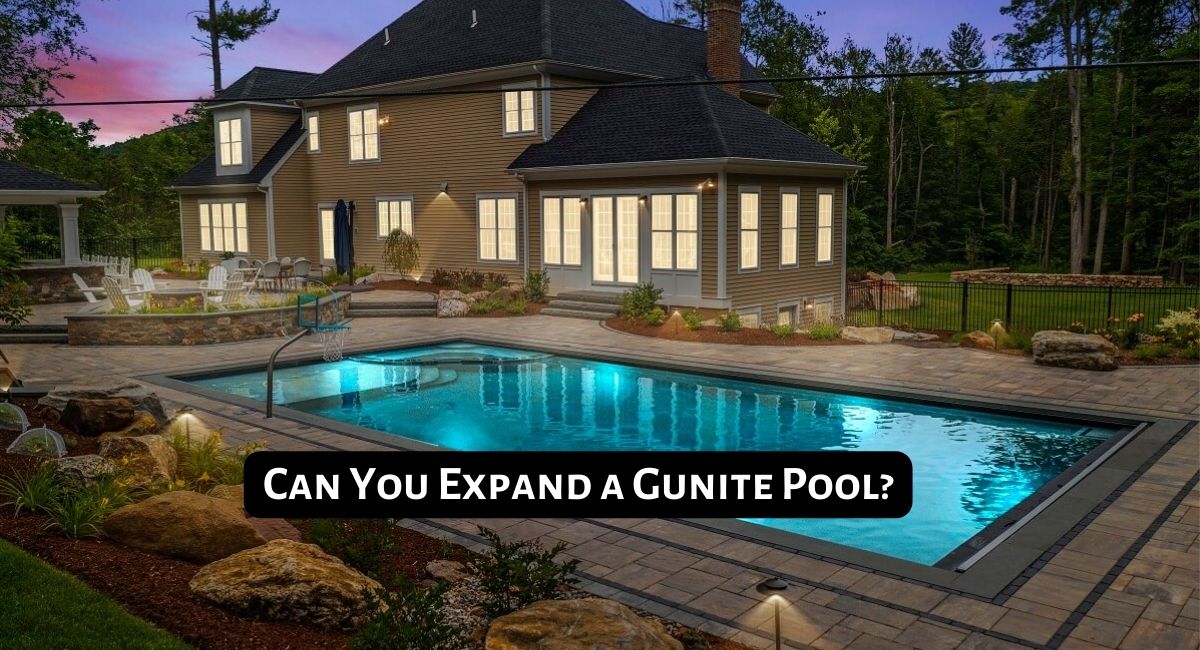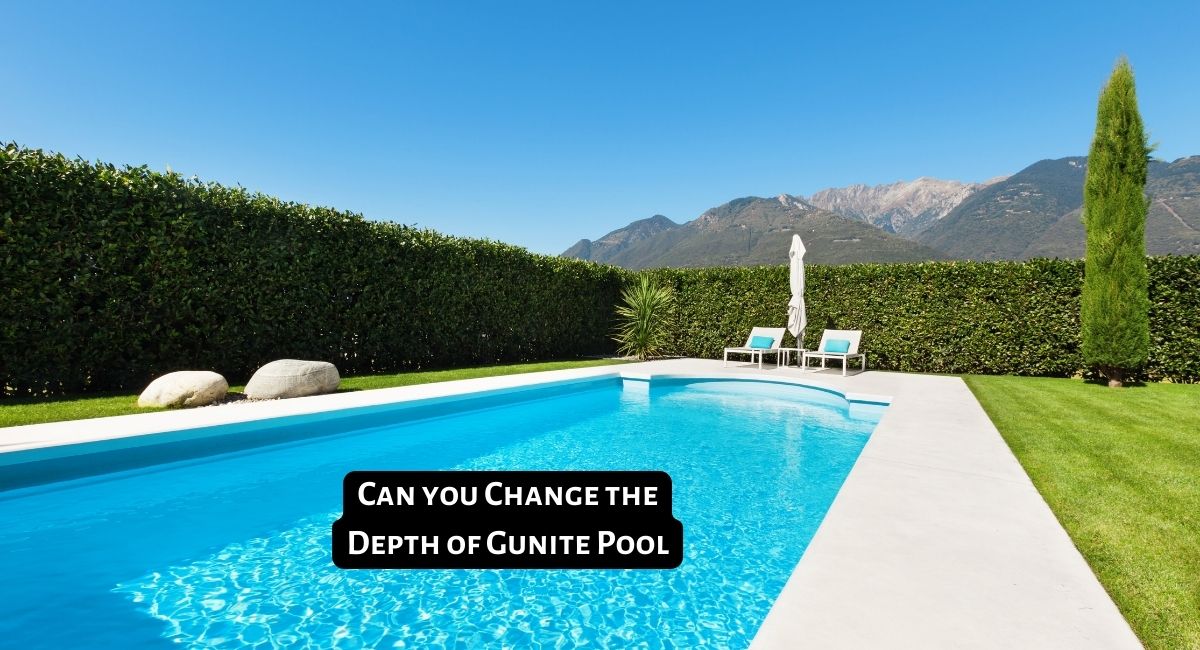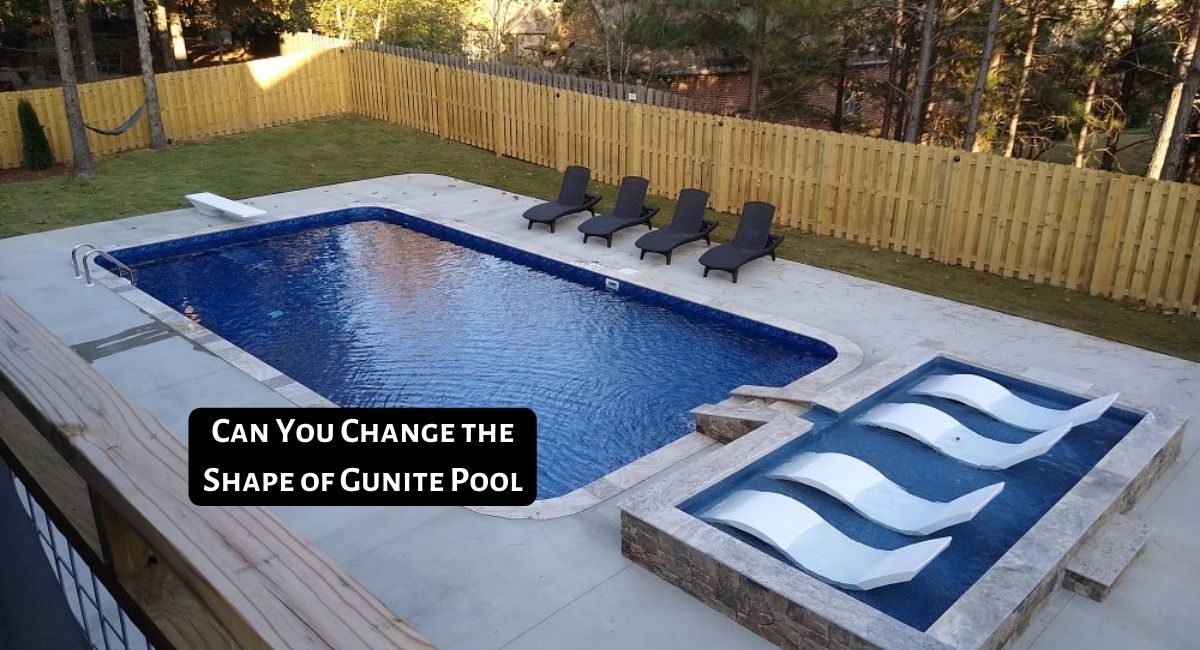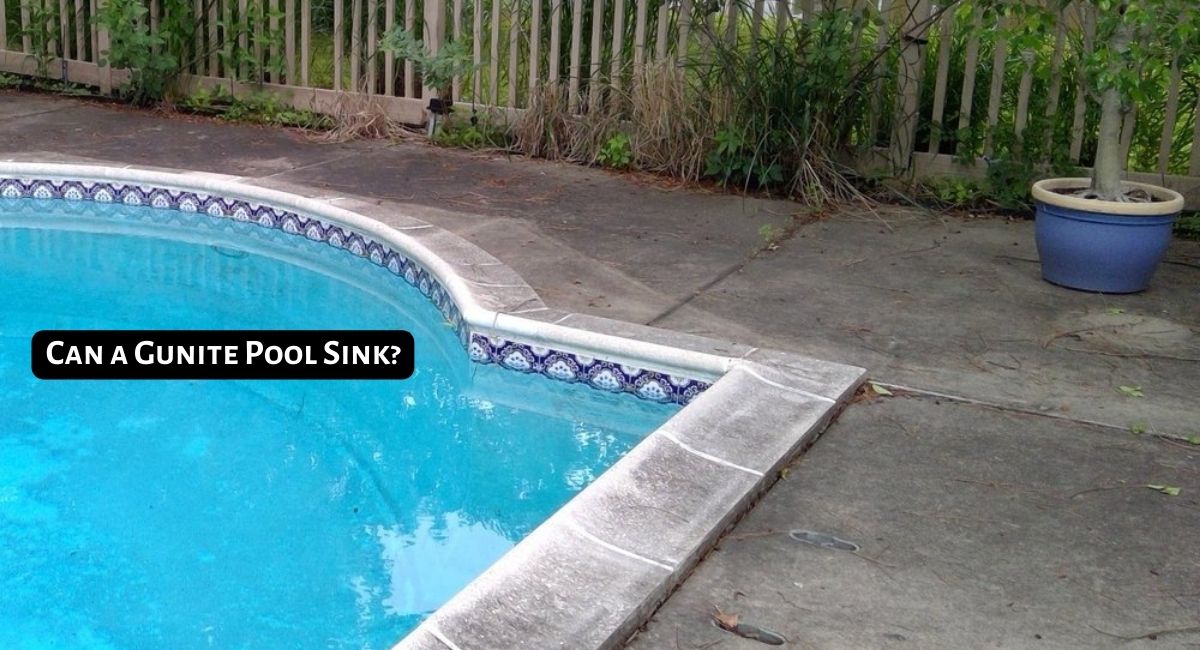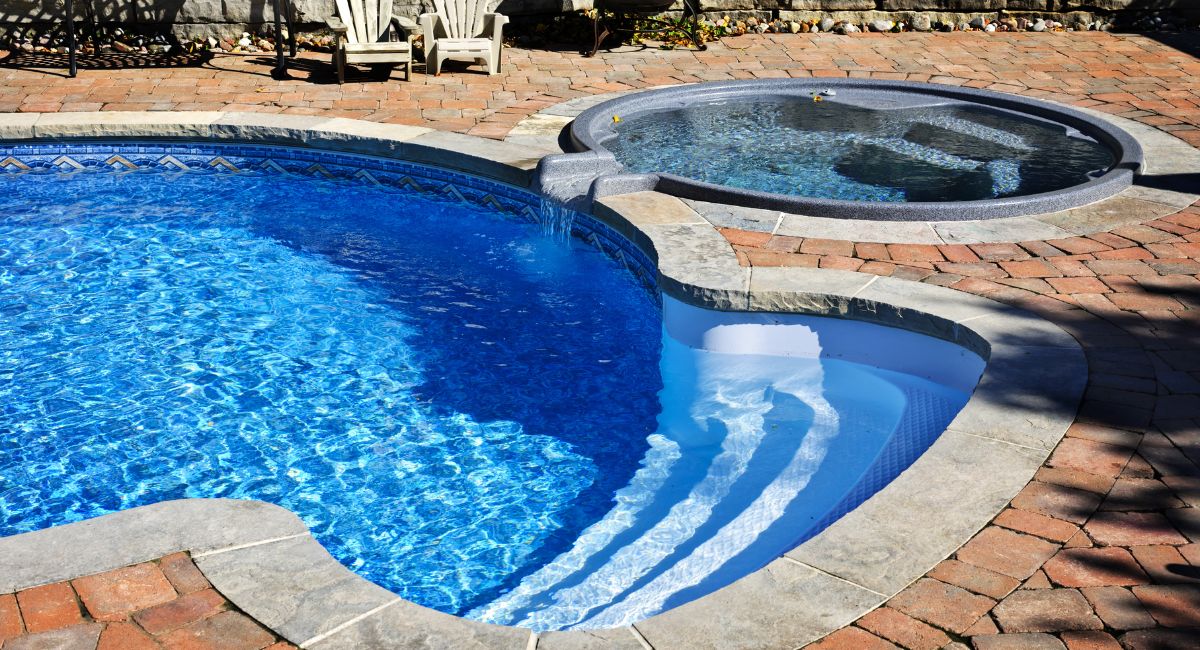If you own a gunite pool and have been considering making it larger to better suit your needs, the good news is that it is indeed possible to expand a gunite pool! Gunite pools are known for their versatility and can be easily reshaped to accommodate changes and expansions.
In this comprehensive guide, we will explore the process of expanding a gunite pool, including the essential steps you need to take and the materials required for the project. We’ll also cover the benefits of expanding your pool and offer some valuable tips to ensure a successful expansion.
Expanding your gunite pool not only adds value to your home but also enhances your lifestyle, providing more space for relaxation, recreation, and family gatherings. Whether your family is growing or you simply want to create a more spacious backyard oasis, this guide will provide you with the insights you need to make an informed decision.
Table of Contents
Key Takeaways
- Gunite pools can be expanded to better suit the owner’s needs and preferences.
- Reasons for pool expansion include accommodating larger usage, entertainment purposes, fitness and exercise, adding features and amenities, improving aesthetics, increasing property value, and future planning.
- Evaluating the feasibility of pool expansion involves considering available space, structural integrity, budget, permits and regulations, utilities and infrastructure, construction logistics, and timeframe.
- The process of expanding a gunite pool involves design and consultation, obtaining permits, excavation, reinforcing the structure, plumbing and electrical work, formwork and steel reinforcement, gunite application, curing and drying, finishing, and start-up and testing.
- Potential expansion challenges include limited space, structural constraints, utility lines and obstructions, access limitations, construction disruptions, and budget constraints.
- Hiring a professional pool contractor is essential for a successful and safe pool expansion project.
Can You Expand a Gunite Pool
Yes, it is possible to expand a gunite pool. Expanding a gunite pool refers to the process of increasing the size or dimensions of the pool. This can involve adding additional space or sections to the existing pool structure.
Expansion can be done to accommodate larger or changing needs, such as increasing the pool size for more swimmers, adding a spa or water feature, or creating additional space for recreational activities.
It may involve excavating and clearing the surrounding area, adding new gunite or concrete material, and possibly modifying the plumbing and filtration systems to accommodate the expanded pool.
Gunite is a type of concrete that is pneumatically sprayed onto a steel framework, which allows for great flexibility in shaping and designing the pool during its initial construction. This flexibility also makes it possible to modify the pool later on.
Common Reasons for Pool Expansion
A gunite pool not only adds value to your home, but it also enhances your lifestyle. As your family grows, your pool should accommodate those changes as well. Expanding your gunite pool can take your backyard oasis to a whole new level.
With the help of experienced pool builders, expanding your Gunite pool is a smart investment that offers many benefits. Below, we will explore some common reasons for gunite pool expansion.
Increased pool usage: As families grow or more people start using the pool, your current pool may start to feel crowded or insufficient. Expanding the pool allows for more space, ensuring that everyone can comfortably enjoy the pool at the same time. This is especially important for large families or for those who frequently entertain guests or host pool parties.
Entertainment purposes: An expanded pool provides a larger space for hosting gatherings and entertaining guests. With more room, you can have additional seating areas, create separate zones for lounging and dining, or even add features like poolside bars or outdoor kitchens. It becomes a focal point for outdoor entertainment, providing a versatile and inviting space for socializing and relaxation.
Fitness and exercise: If you value fitness and exercise, expanding your pool can provide the opportunity to incorporate features that support an active lifestyle. Adding swim jets for resistance swimming, increasing the depth for water exercises, or installing built-in tanning ledges for relaxation can create a dedicated space for fitness and promote a healthier lifestyle.
Adding features and amenities: Expanding a gunite pool allows homeowners to incorporate features and amenities that were not originally included. This could be a spa area for relaxation and hydrotherapy, a water slide for added fun, a diving board for diving enthusiasts, a rock waterfall for a more natural look, or a swim-up bar for a resort-like experience. The expansion gives you the flexibility to customize your pool with the features that you desire.
Aesthetics and visual appeal: Expanding a pool provides an opportunity to enhance its aesthetics and visual appeal. By changing the shape, depth, or design of the pool, you can create a stunning focal point for your outdoor living space. Consider adding unique tile patterns, decorative accents, custom lighting, or water features to create an eye-catching and visually appealing pool that complements your landscaping and adds value to your property.
Increase property value: A well-designed and properly expanded gunite pool can significantly increase the value of your property. A larger, more functional, and visually appealing pool is often seen as a desirable feature for potential buyers. By investing in a pool expansion, you not only improve your outdoor living space but also enhance the overall appeal and marketability of your property.
Future planning: A pool expansion allows for future planning and flexibility. For example, if you anticipate changes in your family situation, such as having more children or accommodating aging parents, expanding the pool can help accommodate those needs. Additionally, expanding your pool now provides the opportunity to lay the groundwork for future additions or modifications, such as incorporating new technologies or adding additional features as your preferences and needs change over time.
Evaluating the Feasibility of Pool Expansion
Before diving into an ambitious project, it’s essential to evaluate the feasibility of pool expansion carefully. From structural considerations and available space to budget constraints and local regulations, a thorough assessment will determine if your vision can become a reality.
Below, we explore the crucial factors you need to examine to ensure that expanding your pool aligns with your goals and transforms your backyard paradise into a true haven of relaxation and enjoyment.
Available Space: Evaluate the available space in your yard to determine if it can accommodate a pool expansion. Consider the dimensions, shape, and layout of your yard, as well as any landscaping or structures that may impact the pool expansion. Consult with a professional pool contractor or designer to assess whether your yard can accommodate the desired pool expansion.
Structural Integrity: Assess the structural integrity of the existing pool and the surrounding area. Determine if the pool’s foundation and structure can support expansion without compromising its overall structural stability. A thorough inspection by a structural engineer or pool professional can help assess the feasibility of expanding the pool while maintaining its integrity.
Budget: Determine the budget for the pool expansion project. Consider the costs associated with excavation, materials, labor, additional features, landscaping modifications, and any necessary permits. Obtain multiple quotes from reputable pool contractors to understand the potential costs involved and ensure that the project aligns with your budget.
Permits and Regulations: Research and understand the local permits, codes, and regulations related to pool expansion. Ensure compliance with setback requirements, fencing, safety features, and any other regulations that may apply to your area. Contact local authorities or consult with professionals to obtain the necessary permits and ensure that your planned expansion meets all legal requirements.
Utilities and Infrastructure: Evaluate the existing utilities and infrastructure in your yard, such as plumbing, electrical lines, and drainage systems. Determine if they can support the pool expansion or if any modifications or upgrades will be required. Seek advice from professionals to assess any potential conflicts or necessary adjustments.
Construction Logistics: Assess the logistics of the construction process. Factors to consider include access to the pool area, the potential impact on the surrounding landscape, and any potential disruption to your daily routines during the construction period. Discuss these factors with your pool contractor to determine the best approach and minimize disruptions.
Timeframe: Consider the timeframe for the pool expansion project. Discuss the estimated construction timeline with the pool contractor and factor in potential delays due to weather conditions, availability of materials, or any unforeseen issues that may arise during the construction process. Ensure that the project timeframe aligns with your expectations and any special events or occasions that may be affected.
How to Expand a Gunite Pool
The process of expanding a gunite pool requires careful planning and expert craftsmanship to achieve a seamless and stunning transformation. In this comprehensive guide, we will walk you through the step-by-step process of expanding a gunite pool, from envisioning the possibilities to the final touches that will turn your backyard into a picturesque haven.
Step 1 – Design and Consultation
Work closely with a professional pool designer or contractor to develop a detailed plan for the pool expansion. They will assess the feasibility of the expansion, including considerations such as available space, structural integrity, and desired features. They will also provide design options and recommendations based on your preferences and budget.
Step 2 – Obtain Permits
It’s important to check with your local authorities to determine the permits and approvals required for the pool expansion. Follow the necessary procedures and acquire the appropriate permits before any construction work begins. This ensures compliance with local building codes and regulations.
Step 3 – Excavation
Once the design is finalized and the necessary permits are obtained, clear the area around the existing pool to make space for the expansion. Excavate the new area according to the design specifications, ensuring the depth and dimensions are accurate. Properly dispose of any excavated materials.
Step 4 – Reinforce the Structure
To support the expansion, reinforce the existing pool structure. This may involve adding additional rebar (reinforcing steel bars) to the existing pool’s walls and floor. The rebar is placed strategically to provide strength and stability to the expanded pool. The reinforcement is securely tied together to create a strong framework.
Step 5 – Plumbing and Electrical Work
Extend the plumbing and electrical lines to accommodate the expanded pool area. Collaborate with professionals experienced in pool plumbing and electrical systems to properly install and connect all necessary pipes, valves, drains, and electrical lines. This step ensures that water supply, filtration, and any additional features can be properly integrated into the expanded pool.
Step 6 – Formwork and Steel Reinforcement
Set up formwork to shape the new pool structure, including walls, benches, or any other unique features specified in the design. The forms are typically constructed using wood or metal framework. Install steel reinforcement, such as rebar, according to engineering specifications. The rebar is placed within the formwork to provide additional strength, stability, and support to the future gunite shell.
Step 7 – Gunite Application
Gunite or shotcrete is a mixture of cement, sand, and water. It is pneumatically sprayed onto the rebar framework, creating a strong and durable shell for the pool. The gunite is applied in layers, gradually building up the pool walls, floor, and any other required structures. Skilled technicians ensure the gunite is evenly and consistently applied, taking care to create a smooth and precise finish.
Step 8 – Curing and Drying
After the gunite is applied, it needs time to cure and dry. This generally involves a curing period of around 10 to 14 days. During this time, the gunite is kept moist and protected to ensure proper hydration and strength development. Curing compounds or moisture-retaining coverings may be used to facilitate the curing process and prevent premature drying.
Step 9 – Finishing
Once the gunite has fully cured, the pool can be finished. This includes several steps, such as tile installation, plaster or pebble application to the pool interior, coping installation along the pool’s edge, and any other desired finishing touches. Work with a professional pool finishing contractor who specializes in these processes to achieve a high-quality and visually appealing finish.
Step 10 – Start Up and Testing
With the finishing complete, it’s time to fill the pool with water and start up the filtration system. Conduct thorough testing to ensure that all plumbing connections, equipment (such as pumps and filters), and water quality parameters are working correctly. Properly balance the pool chemistry and make any necessary adjustments to ensure the water is safe, sanitary, and properly balanced.
Potential Expansion Challenges and Solutions
Expanding a gunite pool can come with its own set of challenges. Here are some potential challenges that you may encounter during the pool expansion process, along with potential solutions to overcome them:
- Limited Space: If your yard has limited space or is already crowded with existing structures or landscaping, expanding the pool may seem challenging. In such cases, consult with a pool designer or contractor who specializes in creative pool designs for small or challenging spaces. They can help find innovative solutions to maximize the available area for the pool expansion.
- Structural Constraints: The existing pool structure needs to be strong enough to support the expansion without compromising its stability. If the current pool structure is not sufficient, reinforcement may be necessary. Consulting with a structural engineer or experienced pool contractor can help determine the feasibility of reinforcing the structure and provide appropriate solutions to ensure structural integrity.
- Utility Lines and Obstructions: Underground utility lines, such as plumbing or electrical cables, can pose challenges during the excavation process. Ensure that you have accurate utility line mapping and consult with professionals to identify and locate any potential obstructions before excavation begins. Solutions may involve rerouting the utility lines or adjusting the pool design to avoid conflicts.
- Access Limitations: Limited access to the pool area can complicate the construction process. If there are narrow pathways or obstacles that make it difficult to bring in machinery or materials, work with your contractor to develop a plan that addresses these access limitations. This may involve using smaller equipment, modifying the construction methodology, or temporarily removing and reinstalling obstacles.
- Construction Disruptions: During the expansion project, construction activities may cause disruptions to your daily routines and outdoor living spaces. Planning ahead can help minimize these disruptions. Discuss the construction timeline and specific areas of concern with your pool contractor, and find ways to work collaboratively to mitigate disruptions and maintain a safe, clean, and organized worksite.
- Budget Constraints: Expanding a gunite pool can be a significant investment, and it’s important to align the expansion plans with your budget requirements. Work closely with your pool contractor to develop a realistic budget that considers all aspects of the expansion, including construction costs, materials, additional features, and any landscaping modifications. Identify areas where you might be able to compromise or phase certain elements over time to fit within your budget constraints.
- Weather and Seasonal Limitations: Weather conditions and seasonal factors can affect the construction timeline and overall progress of the pool expansion. Plan for potential weather delays or seasonal restrictions that could impact the project. Collaborate with your pool contractor to establish a construction schedule that takes these factors into account and allows for flexibility in case of unexpected weather events.
Embark on exciting pool expansion projects to transform your current pool into the backyard oasis of your dreams. Whether you desire additional features, enhanced aesthetics, or increased functionality, these examples will inspire you to take your pool to the next level.
Can You Add a Spa to an Existing Gunite Pool: Discover the possibilities of adding a spa to your existing gunite pool and learn about the renovation process involved in integrating this luxurious feature.
Can You Change the Depth of Gunite Pool: Explore the feasibility of altering the depth of your gunite pool during a renovation and understand the considerations and challenges associated with this modification.
Can You Change the Shape of Gunite Pool: Find out if it’s possible to change the shape of your gunite pool and learn about the design considerations and structural modifications required for this renovation.
Can You Change the Size of Gunite Pool: Learn about the options for resizing your gunite pool during a renovation and the factors that may influence the feasibility of this modification.
How to Prepare for a Gunite Pool Renovation: Get expert tips and guidelines on preparing for a gunite pool renovation, including assessing the current condition, setting a budget, and selecting design changes.
Conclusion
Expanding a gunite pool is indeed possible and offers an opportunity to enhance and customize your swimming experience. The flexibility of gunite as a construction material allows for modifications and additions to the pool’s size, shape, and features. However, undertaking such a project requires careful planning, professional expertise, and adherence to local building codes and regulations.
To ensure a successful pool expansion, it is vital to collaborate with a qualified pool contractor or engineer. They will assess the pool’s condition, design the expansion, obtain necessary permits, and oversee the construction process to ensure a seamless integration of the new section with the existing pool.
By working with experienced professionals, you can transform your gunite pool into a more spacious and enjoyable oasis, tailored to meet your specific needs and preferences. Remember to plan carefully, budget accordingly, and prioritize safety throughout the expansion process to maximize the benefits of your newly expanded gunite pool.
Frequently Asked Questions (FAQs)
1. Do I need a permit to expand my pool?
Yes, obtaining a building permit is typically required before expanding a gunite pool. Building permits are essential to ensure that the expansion project complies with local building codes, safety regulations, and zoning ordinances. The permit process may involve submitting detailed plans and specifications of the proposed expansion, and it’s essential to work with a pool contractor experienced in handling the permitting process.
2. How long does it take to expand a gunite pool?
The timeline for expanding a gunite pool can vary depending on several factors. The size of the expansion, the complexity of the design, weather conditions, and the availability of the pool contractor all play a role in the project’s duration. Generally, the expansion process can take several weeks from the initial planning and excavation to the final finishing touches. However, larger or more intricate expansions may require a more extended timeline.
3. Will expanding my pool affect the surrounding landscape?
Expanding a pool will likely involve excavation and construction work, which may impact the surrounding landscape. Temporary removal of plants, trees, or other structures close to the pool area may be necessary to make room for the expansion. However, a reputable pool contractor will strive to minimize the impact on the surrounding landscape and take steps to preserve existing elements whenever possible. Additionally, after the expansion is complete, landscaping and restoration efforts can be undertaken to beautify the pool area.
4. How much does it cost to expand a gunite pool?
The cost of expanding a gunite pool can vary widely based on several factors, including the size of the expansion, the complexity of the design, the location, and any additional features being added. Pool owners should request quotes from reputable pool contractors to get a precise estimate for their specific project. The cost to expand a pool can range from $20,000 to $70,000 for significant projects. However, if you’re working with a smaller budget, you can spend as little as $2,000 to freshen up your pool’s look and feel.
5. Should I hire a professional pool contractor for the expansion?
Yes, expanding a gunite pool is a complex and specialized project that requires expertise and experience in pool construction. Hiring a reputable pool contractor ensures that the work is done correctly, adhering to safety standards and local regulations. A professional pool contractor will have the necessary knowledge, equipment, and skilled labor to handle every aspect of the expansion, from the initial design and planning to the final finishing touches. Working with professionals also minimizes the risk of errors, delays, and potential costly mistakes, providing peace of mind throughout the expansion process.
